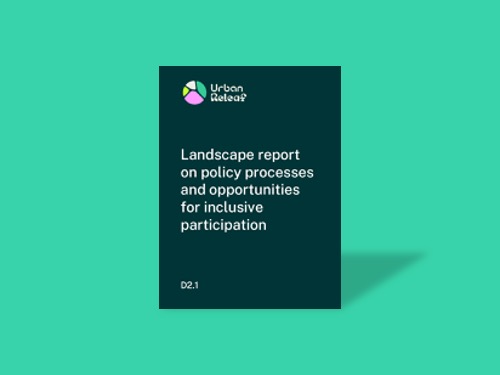A landscape report on policy processes and opportunities for inclusive participation.
Urban ReLeaf has published a new report that analyses the policy landscape as well as existing gaps, providing recommendations for inclusive citizen participation and data-collection opportunities in our pilot cities. It articulates the current state of affairs within Urban ReLeaf six pilot cities: Athens, Cascais, Dundee, Mannheim, Riga, and Utrecht, concerning urban greening policies, climate change strategies, and the active involvement of citizens.
Content
1. Current Status and Future Aspirations: A snapshot of the current status of each pilot city concerning urban greening and climate change adaptation including the cities’ visions for the future.
2. Citizen Engagement: The identification of the anticipated role of citizens in urban greening activities and whether considerations of justice were integrated into these roles.
3. Barriers and Gaps: The barriers and gaps faced by pilot cities in their activities related to urban greening are outlined. Notably, all cities exhibited a pressing need for additional data to effectively steer their climate adaptation strategies.
4. Stakeholders and Initiatives: A mapping of relevant stakeholders and initiatives within each pilot city is provided. This first stage of ecosystem analysis supports the identification of potential collaborators and resources for follow on activities.
Opportunities
As Urban ReLeaf advances, it aspires to bridge gaps, foster collaboration, and make substantial contributions to urban greening and climate adaptation efforts in its pilot cities, opportunities highlighted in the report include:
Citizen-Generated Data: The potential for citizen-generated data to enhance green infrastructure planning and decision-making presents an opportunity for Urban ReLeaf.
Alignment with City Visions and Ongoing Initiatives: The future visions of each pilot city and their ongoing initiatives positions the project as a valuable resource that can complement and augment existing efforts.
The Call for Inclusivity and Justice: The critical importance of social justice considerations encompasses planning for diverse target groups and their unique circumstances, formulating inclusive participation mechanisms tailored to these groups, and evaluating the impact of research activities on different communities.
